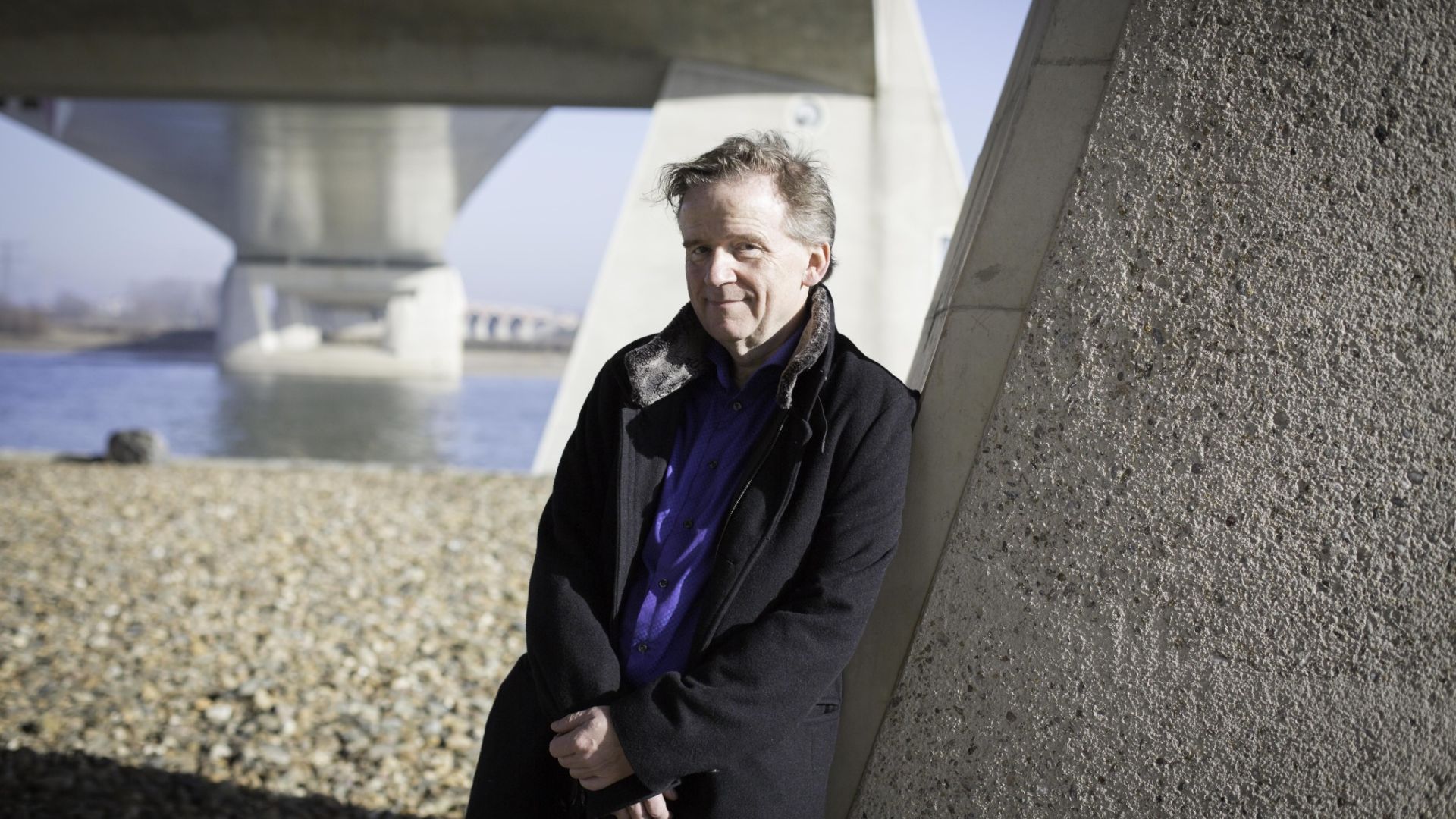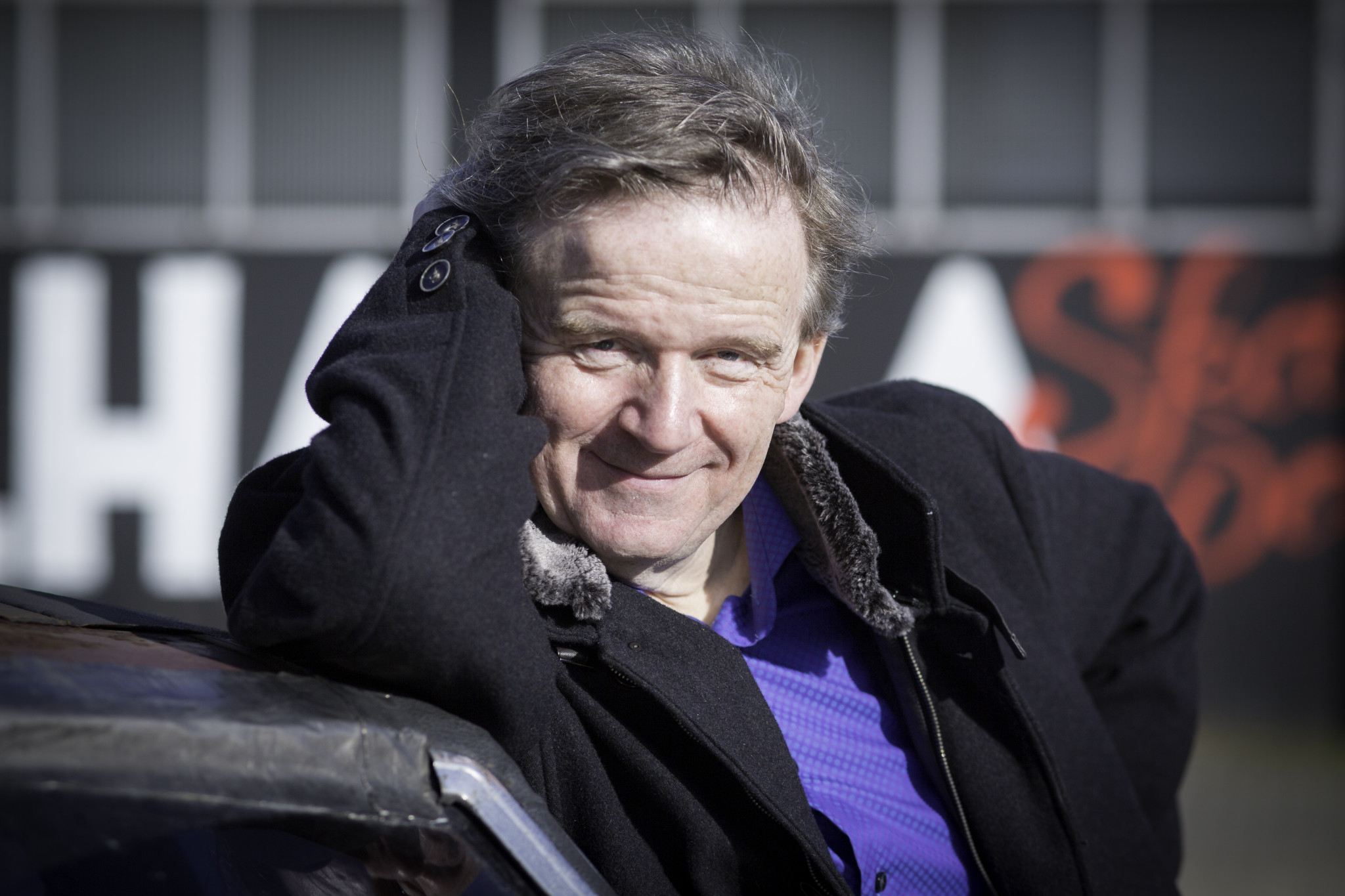‘Even human extinction leaves us unmoved’
-
 René ten Bos. Foto: Erik van 't Hullenaar
René ten Bos. Foto: Erik van 't Hullenaar
The extinction of animal species leaves us unmoved. Retiring Thinker Laureate René ten Bos wrote Extinctie (Extinction), about why we remain unmoved. ‘Ultimately, humans too are an endangered species.’
At the Cultuurcafé, René ten Bos (59) demonstrates how to kill a chicken: clasp it firmly under your arm, hit it on the head, and then slit its throat. ‘Lengthwise, not crosswise. That way it bleeds faster. My dad always said it should be over as quickly as possible.’
As a little boy, he thought it was great fun, this chicken killing business. ‘But it’s a memory from fifty years ago. At the time I thought it was funny to see a headless chicken run around. I don’t think I would enjoy it much now.’ His father, a cotton miller from Twente, earned money on the side as an assistant poulterer. Slaughtered chickens brought a welcome addition to the Ten Bos family budget.
This drama is unfolding away from the eyes of the wide public.’
Last week, Philosopher and Thinker Laureate Ten Bos published a new book, Extinctie, about endangered species. The chicken is not one of them, by the way. You might call the chicken a successful species, says Ten Bos. ‘There are millions of chickens in this country alone.’
White rhinoceros
Compare this number to lone individuals like Lonesome George, the last male specimen of the giant turtle species chelonoidis abingdonii, who roamed around the Galapagos Island Pinta for many years. He died on 24 June 2012, aged over 100. Or take Sudan, the white rhinoceros who died last year in a Kenyan nature reserve. Guards were protecting this last surviving male with their lives, but unfortunately he had no progeny, so the white rhinoceros became extinct before our very eyes. Lonesome George and Sudan have become icons for endangered species.
Thinker Laureate
René ten Bos was appointed Thinker Laureate in 2017. For the past two years he has delivered over four hundred lectures. According to his own estimate, this means he reached a live audience of approximately 30,000 people. He writes a weekly column for Het Financieele Dagblad. On 1 April he passed his title to Daan Rovers. Ten Bos will continue to investigate the philosophy of health issues at Radboud university medical center and he will retain his position as Professor at the Nijmegen School of Management.
‘These are charismatic animals,’ says Ten Bos. ‘But we have no images at all for the vast majority of endangered species. This drama is unfolding away from the eyes of the wide public.’
And that’s precisely the problem: we remain unmoved by this wave of extinction, because we don’t have images for it. How can you mourn the disappearance from our landscape of the great grey shrike if you don’t know that it used to be a common bird? ‘Only old country folk get tears in their eyes when they hear about it.’
In his book, he describes the sadness that overtakes him when people believe they’re hiking in ‘nature’, when in fact they’re ‘walking through a desert landscape of their own making’. There’s even a term for it: the shifting baseline syndrome. ‘A process by which after a while, knowledge about the state of an environment is lost, because people are unaware of the changes that are taking place.’
We don’t know any better, so we don’t shed any tears. But even if we are well informed, still, there is no indignation or public outcry. ‘In my lectures, I can tell people that animals are currently becoming extinct at a rate 45,000 times faster than normal, but then they ask ‘What’s normal?’ and how do you arrive at this figure.’

Why an alarming book about endangered animal species? You write that extinction should be on everyone’s agenda. This seems to go further than objective scientific investigation.
‘It’s a theme that touches me; I think it’s a great pity that species are disappearing, and it makes me sad. I already talked about extinction in one of my earlier books, Het geniale dier (The gifted animal). I wanted to explore this topic further and use it – for example in the lectures I’ve given over the past two years – to draw people’s attention to the catastrophic consequences of our actions.’
What do you hope to achieve?
‘I hope to raise awareness. These days, environmental discussions often take place against a backdrop of personal responsibility. If you stop eating meat and travelling by plane, and everyone follows suit, everything will be ok. But this is naive; it’s not how things work. Air travel continues to grow and expand every year. By thinking like this, you miss the systemic elements. What’s more, it makes the discussion sensitive to escalation and conflict. Look at the recent climate march, which drew 40,000 people. They got responses like: ‘Yes, but you’ve all got mobile phones, which is also not good for the environment.’’
So what does work?
‘Slowly preparing people for rigorous change. Thirty years ago, if you mentioned sustainability in a corporate environment, you were dismissed as a flip-flop-wearing hippie. But things have changed. The loss of biodiversity is serious; we’ve lost so much already. The underlying cause is the disruption of the nitrogen cycle, which is our most urgent problem. This is an issue far greater than you and me.’
One might object that species have always been going extinct. Survival of the fittest, and all that. Why is today’s extinction so problematic?
‘Because so many animal species are being driven into extinction by human activities. In addition to global warming, we overhunt, overfish, etc. Compared to one hundred years ago, the number of fish in the world’s seas has dropped by 94%. Or look at insects. A few years ago even a short drive on a summer day would cause a bloodbath on your windshield. That’s no longer the case. Even at microbial level diversity is decreasing. Ultimately, humans too are an endangered species. But we’re so incapable of imaging our own demise, even this leaves us unmoved.’
Surely, there’re also species we’d rather see the back of? You write about the screw-worm, which destroys entire herds and has been exterminated in Curacao and in Libya.
‘Yes, the screw-worm is a pest. If you have a wound on your head, it crawls inside and eats your brains out. Not very nice, I can tell you. Plus the screw-worm has no use: it doesn’t contribute anything – it only takes. In some countries, people have systematically exterminated it. It has absolutely no intrinsic value for us. It’s a parasite.’
So we’re the ones who decide whether an animal is useful or not.
‘We look at economic value. Or ecological value. Does an animal have a role in the ecosystem? You might argue a mosquito is useful as food for swallows.’
Do we have a tendency to think of cuddly animals as more useful?
‘You can’t cuddle a whale, yet whales move us. But a biologist might say dogs and cats are clever animals, because they’ve allowed themselves to become domesticated. It’s the best survival strategy. You have Siberian cats and Siberian tigers. Cats are more intelligent, from an evolutionary perspective. We feed them Whiskas and they thrive. Tigers are tricky creatures that need our help to survive. Cats come and rub up against our legs, which is why we like them. I somehow can’t imagine a screw-worm doing that.’
The extinction you write about is brought about by humans. Your book also discusses the potential solution of ‘reducing the earth’s human population’.
‘Yes, but as I wrote, I don’t believe in the political viability of so-called antinatalism.’

Why not?
‘I’m very much against top-down solutions. Are we going to tell some ethnicities, or continents: ‘Stop reproducing like rabbits’? In coming decades the biggest population explosion will take place in Africa. For the people there, a large family is probably the best guarantee of a safe future. What works better is to raise the level of welfare, which automatically reduces the need for a large family.’
Prosperous people consume more. They eat more meat, are more likely to travel by plane…
‘So should people in Africa just remain poor? Because they pollute less per individual? Who are we to make these decisions for others? Make sure they can sell their products to us in a sustainable manner. Make sure the Sahel is once again covered in trees – that’s happening already, incidentally. Improved welfare is beneficial for the planet, just not in the short run.’
In your book you also describe human extinction? Is this a solution to stop the extinction of other species?
‘No. We’ve set so many things in motion, there’s no way to stop it by allowing ourselves to become extinct. And how are you planning to do it? Collective suicide? That’s a ridiculous idea. And with no guarantee of success – there’s always someone who bails out.’
You’re wearing snakeskin boots. In De Groene Amsterdammer you even admitted having ten more pairs in your wardrobe. Is this something you can still get away with these days?
‘Of course there are people who find it unacceptable. But to them, I say: ‘Fuck you!’ Finger-pointing makes me rebellious. I don’t eat meat, so I’m allowed to wear lots of boots made of animal skin. Humans are above all creatures of compensation, you know. By the way I’d never tell another person to stop eating meat. Who am I to say that?’

